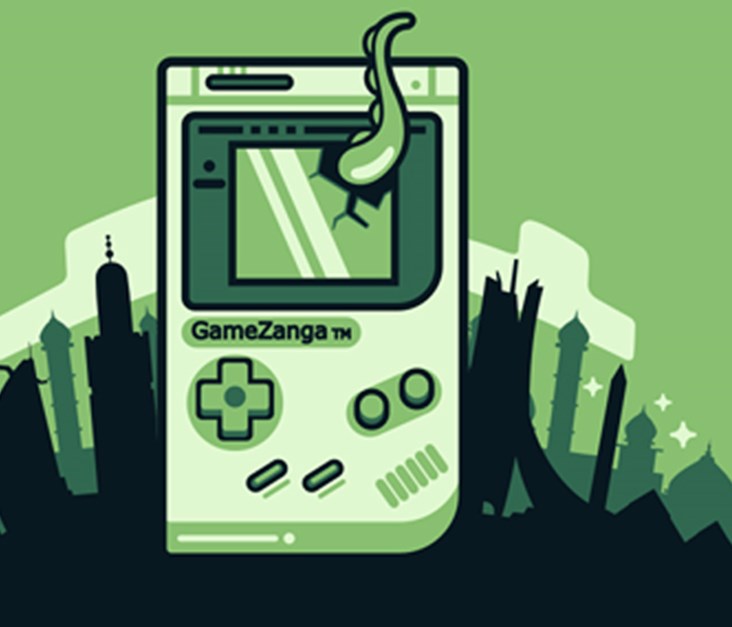
It’s no secret that the games industry has been globally outperforming the movies industry for quite some time now. In 2012 alone, games made twice as much as movies did on an international scale. Games have been growing exponentially, especially since smartphones started the mobile gaming revolution, and last year’s Call of Duty: Black Ops 3 made about 550 million US dollars in the first three days of its release alone. For comparison’s sake, James Cameron’s record breaking movie Avatar made little over 100 million US dollars over its opening weekend.
By now you’d think everyone worldwide has gotten the memo about how profitable gaming is, as demonstrated by China’s big push into mobile and PC games, but the MENA region seems to have been reluctant to jump in until the last couple of years. The talent is there, but what infrastructures are in place to help the regional gaming market flourish like it has elsewhere?
There has been a palpable growth in the sector, vastly spearheaded by a scene of enthusiastic Arab indie developers —bigger studios i.e. Game Cooks and smaller but prolific studios i.e. Groovy Antoid—, reflected in the popularity of regional game jams like Game Zanga, the Arabic Game Jam and regional chapters of the Global Game Jam.
And why wouldn’t there be? The regional demographic skews young and computer literacy is widespread particularly through smartphones finding their way into many hands. Add to it the fact that the Arabic speaking demographic —a good 280 million people—is currently quasi-untapped and you have a customer base ready for games to go regional in a big way.
Market
Ahmed Alsafar of Play 3arabi tells us that GCC countries lead the region in terms of active players, with Saudi Arabia alone accounting for about 50% of Arabic speaking mobile players. That’s a good 30 million people. Saudi also boasts the largest number of “whales”, the unfortunate name given to users who spend the most on games and in-game purchases and are mobile developers’ bread and butter.
Qatar, the UAE and Kuwait are also big spenders and have a higher percentage of active players than Saudi relatively, but Saudi’s massive population ultimately means they dwarf the competition in sheer number of users alone.
Interestingly enough, Ahmed notes that about 20% of the Arabic mobile games sales he registers on digital marketplaces like the Apple App Store come from US based accounts. This is probably partially caused by the large amount of Arabs expats, but Ahmed also speculates that a lot of these US accounts belong to local players that think the US App Store has better, less restricted content.
This is a belief that’s been hard to shake and it makes it more difficult for local games to get much in the way of visibility, as a good chunk of their target audience is already looking at a global mobile market flooded with thousands upon thousands of competing games.
It’s important to note that the global games industry has also recently taken an interest in the MENA market, as demonstrated by big titles like FIFA’s Arabic push and the more recent localization of the latest entry in the Tomb Raider series into Arabic —complete with an Arabic speaking Lara Croft! The latest Call of Duty: Infinite Warfare trailer showcases what some are speculating is an Arab Lebanese woman as a main character- she even sports the Lebanese flag on her military uniform.
Companies like Ubisoft and Gameloft both now boast offices in the U.A.E., located in Abu Dhabi and Dubai respectively. Now that big international players have taken note of our region as a lucrative base to market to, the slow expansion of the local games industry should be booming. What would it take for such a boom to occur? More than a few crucial factors, it turns out, and we’re seeing real, concrete steps from regional groups attempting to grow the MENA games industry.
Government Support
Government support of local efforts, for one, is instrumental in the aforementioned growth. In August 2014 the Banque du Liban announced Circular 331, an initiative “injecting the potential of 400 million dollars into the Lebanese enterprise market. This has resulted in the establishing of Beirut Digital District, in their own words a “community focused urbanized hub for […] creative companies and talents.” While not gaming specific, BDD has nonetheless had a considerable effect on the Lebanese tech scene and games scene by extension.
Another such government backed effort is the tax-free media zone twofour54 in AbuDhabi. Though not games focused either, the hub is home to edutainment company Lamsa, and twofour54’s Creative Lab has brought forth its first Emirati themed mobile game “Shaheen”.
According to Ahmed Alsafar, the biggest and most organized such MENA governmental push for a games industry is allegedly happening in Tunisia —and their efforts have been paying off, as demonstrated by their powerful presence at this year’s MENA games conference, where the Tunisian “Dream Team” won first prize at the Arabic Game Jam the conference hosted. Other Arab countries such as Jordan indirectly fund local game developing initiatives through more broadly reaching means like the King Abdullah II Fund for Development’s Gaming Lab.
Investment
Ultimately, this is a good start but unless private funding and venture capital get involved, it’s unlikely to be enough to sustain a young industry still in the midst of its growing pains. The interest is there, as demonstrated by companies like IFP group launching MENA’s first gaming conference last year, MEGA. The conference held its second iteration this past April in Beirut, boasting a lineup of international speakers and a number of regional and global exhibitors.
The role of local industry events like #MEGCON (the Dubai based Middle East Games Convention) and MEGA (the Beirut based MENA Games Conference), local chapters of international organizations like the IGDA (international game developers association) and GGJ (Global Game Jam), and smaller scale collectives like the uniquely impressive Riyadh-based women’s games conference GCON, and more recent Lebanese indie developer community effort ArabArcade cannot be understated. An inclusive, healthy gaming community is instrumental in creating hype for regional titles as well as generating and retaining local talent —and enticing it to remain local. A healthy community and a healthy industry feed off each other, and can even encourage Arab experts currently working abroad to repatriate and help build the MENA games industry instead.
Arab developers have already found success both regionally and globally, mostly in mobile gaming where team sizes and budgets tend to be considerably smaller than your average triple A console or PC title. Paul Salameh’s virtual pet game “Pou” for Android, iOS and Blackberry has seen considerable global success. It’s available in a number of languages, the first two listed on its page being English and Arabic.
Another success story that broke into the global market is the mobile platformer “Babylonian Twins”, the brain child of three Iraqi developers available for Android and iOS: its website boasts over 2 million downloads and launched to considerable critical praise. “Babylonian Twins” is the first in a trend of regional games finding inspiration in their own cultural lore for games, paving the way for more technically sophisticated titles like “Tribal Rivals” (or Faz3a in arabic), a free to play game for mobile that lets you build your own Arab desert tribe then defend it from other players’ desert tribes in a play style reminiscent of the hugely popular Clash of Clans.
You can surmise by now that when it comes to this budding MENA games industry, the will and talent are already there. What’s missing, according to Ahmed Alsafar, is the kind of bold financial backing and organization that developing and launching a game competitively requires, and as we’ve mentioned it hasn’t and won’t come until we make some big changes.
Gaming is a high risk, high reward business and to make a splash in this highly competitive market you need a budget of consequence. As more diverse success stories come out of the region and we march towards stability, we’re bound to see more investors back local ventures into the fascinating —and lucrative!— world of games. That time can’t come soon enough.

Dina is a game designer, artist and narrative designer from Lebanon. She has worked in the games industry for almost a decade, from its modest beginnings in the Arab world to the companies of legendary designers in Japan. Wholly dedicated to the craft of interactive storytelling, she commands her own host of tales and is currently working on her first VR empathy game about the modern Arab identity. She is also preparing a talk on Arab representation in games post 9/11 for a western game developer audience.
See related articles
How Tunisia Is Building Its Gaming Community
MEGAplay Game Jam Beirut - The Quest for Better Games
Latest Business
Intelligence Report














